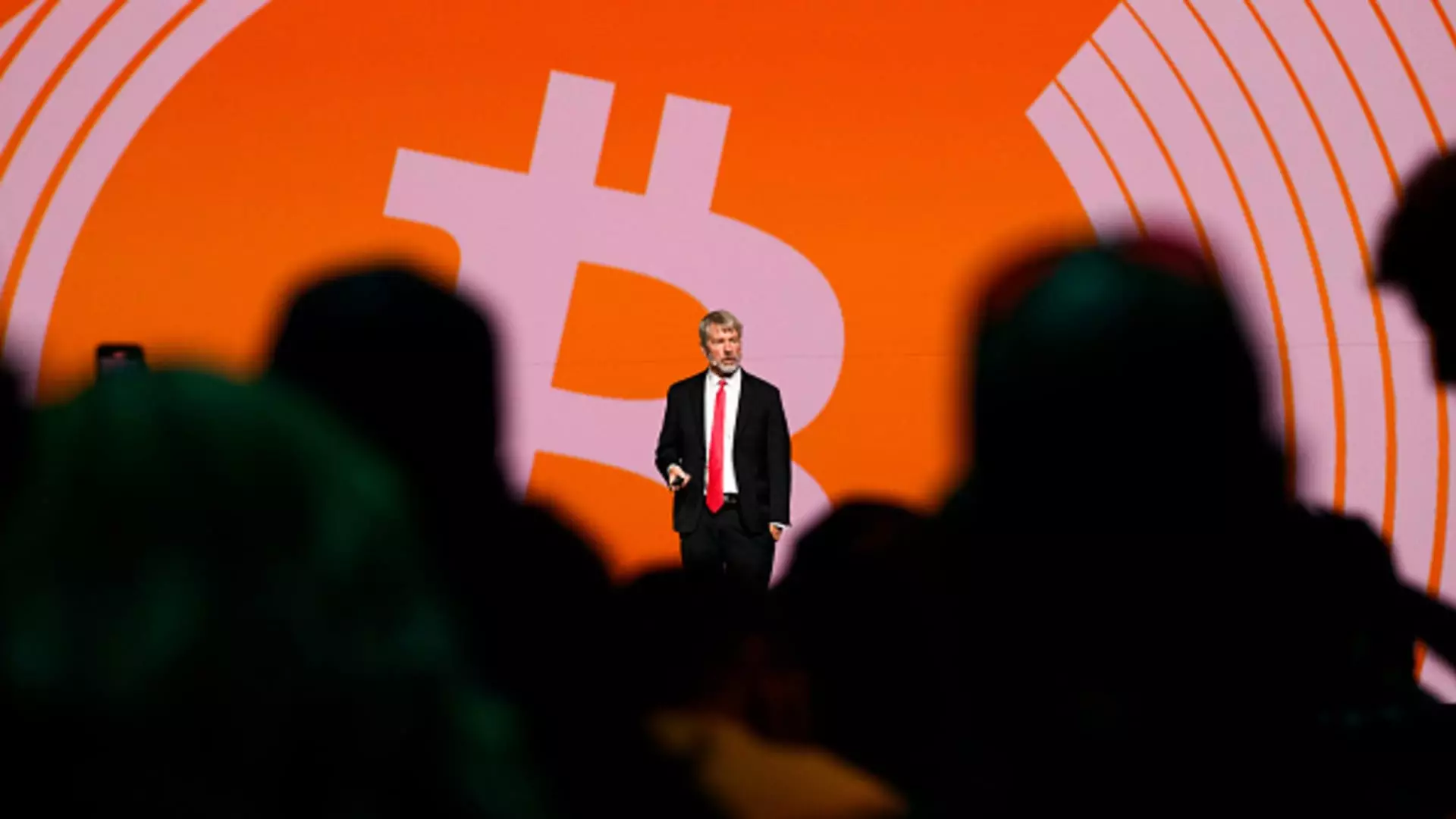Bitcoin’s journey from a niche cryptocurrency to an asset commanding the attention of multinational conglomerates is nothing short of revolutionary. What once was viewed as a speculative investment embraced predominantly by tech enthusiasts is now being integrated into the fabric of corporate finance. However, the fever with which companies are now scrambling to adopt “bitcoin treasury strategies” raises pressing questions about the sustainability of this trend and its potential ramifications. Bitcoin’s newfound allure is epitomized by Strategy (formerly MicroStrategy), whose aggressive strategy has catapulted its market cap beyond an astonishing $80 billion. While the echoes of its triumph resonate across various sectors—meme stocks, media corporations, and formidable conglomerates—real skepticism lingers in financial markets regarding this meteoric rise.
The recent announcements by GameStop and Trump Media to acquire significant bitcoin holdings—$500 million and a staggering $2.5 billion respectively—are emblematic of a seismic shift. But is it wise to leap into such a tumultuous pool? The market’s response has been lukewarm. Rather than following in Strategy’s golden footsteps, shares of both companies have taken a hit, with Trump Media’s stock plummeting over 20% post-announcement. This raises an essential inquiry: Are these companies genuinely equipped to adapt to a cryptocurrency-dominated business model, or are they merely chasing a trend that will ultimately lead to their undoing?
A Political Climate Fueled by Cryptocurrency
The evolving political landscape is also catalyzing this corporate bitcoin craze. With the Biden administration initially adopting a cautious stance towards cryptocurrency, many organizations saw regulatory red flags rather than opportunities. However, the picture has radically shifted under President Trump’s administration. His March executive order aimed at establishing a U.S. Strategic Bitcoin Reserve signals a proactive governmental approach; merging the imperatives of national interest with digital currency potential. This strategic pivot could set the stage for a broader acceptance of cryptocurrencies across various sectors and influence global policy regarding digital assets.
Nevertheless, the narrative isn’t that simple. The reserve, funded by bitcoin confiscated from criminal activities, appears paradoxical at best. While government action may intervene positively, it also raises ethical dilemmas about the state’s role in capitalizing on a decentralized asset. As Trump allies himself with the evolving crypto landscape, how much of this initiative is driven by genuine belief in bitcoin and how much is politically motivated opportunism?
Investment Dynamics: The Great Divide
Central to this phenomenon is the assessment of how corporate finance structures influence cryptocurrency adoption. The apparent excitement exhibited by some corporations overshadows a persistent skepticism in others—as evidenced by Microsoft shareholders recently voting down a proposal to leverage its cash reserves for bitcoin investments. This captures a tangible divide in corporate investment philosophies: dynamic adopters versus cautious traditionalists.
As Michael Saylor, the Chairman of Strategy, offered insights during Bitcoin 2025 in Las Vegas, he noted that while blockchain and bitcoin adoption are on the rise, skepticism among corporates remains etch-a-sketch surprising. This resistance raises critical concerns about corporate responsibility as companies weigh the potential risks against the obvious rewards. In a world where innovation is almost compulsory for survival, how will these inertia-bound firms fare in the face of crypto competition?
The Fragility of Innovation
Even while bitcoin thrives on the notion of decentralization, the burgeoning corporate interest could paradoxically threaten its fundamental ideals. Critics warn that the integration of colossal entities into the bitcoin ecosystem serves to undermine the asset’s foundational principle: autonomy from centralized financial control. Is there a risk that these corporate titans, by introducing their philosophies into the mix, could dilute what makes bitcoin revolutionary? Saylor asserts the opposite: that a diverse range of stakeholders enhances its integrity. However, such an optimistic view is contentious and invites further discourse on the balance between innovation and maintaining the very essence of cryptocurrencies.
As these corporations continue to accumulate vast reserves, the economic implications are undeniable. The pathway forward is fraught with uncertainty—will bitcoin evolve into a stable form of digital capital, or will the speculation it elicits cause a dystopian crash? The choices made today by these corporate giants will not only influence their own futures but also shape the broader crypto landscape moving forward.
In this transformative era, the balance between pursuing profit, embracing innovation, and maintaining authentic principles remains fragile. It is essential to critically assess not only where bitcoin might take us but also the integrity of those leading the charge.

